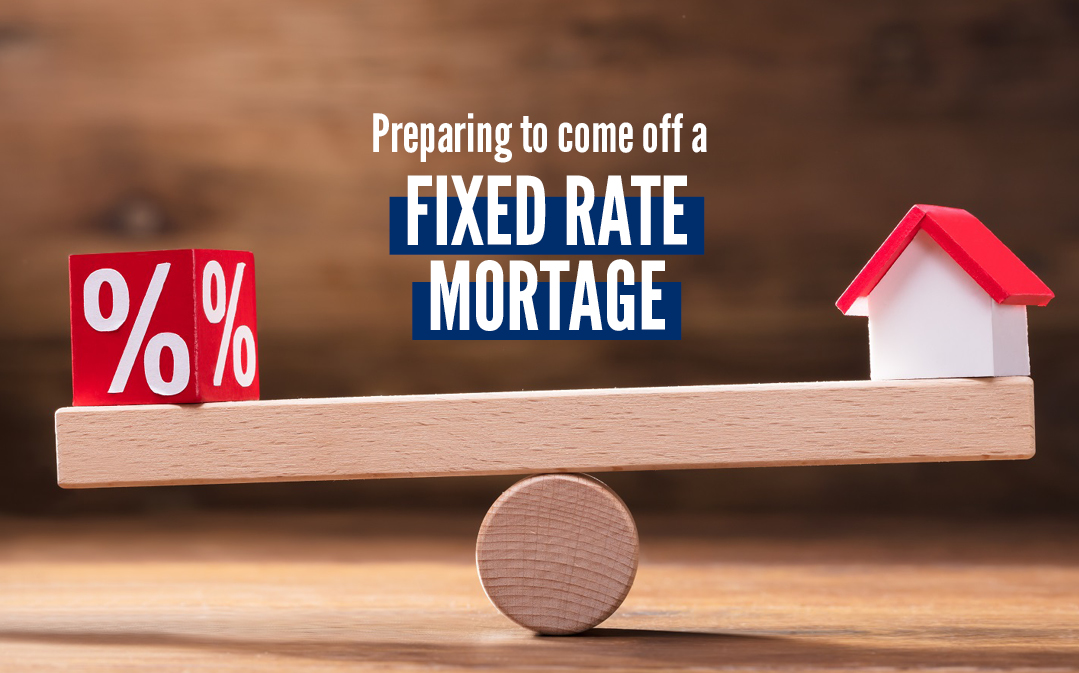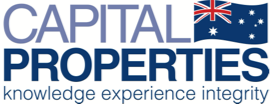Loan coming off a fixed rate this year? How to prepare
How to prepare for coming off a fixed rate mortgage
As an Australian Defence Force (ADF) member, you should already be clued-up about the importance of having a solid financial plan. Whether you’re new to saving/investing or already have a great Post Defence Force Property Strategy, being prepared for contingencies is vital. And that means being prepared for adjustments in your mortgage arrangements.
If you’re one of the thousands of Aussies who were clever enough to get their hands on a low-interest fixed rate home loan in 2020/2021, you might be fast approaching the end of your fixed term. That’s likely to mean you’ll be adjusting from a mortgage rate of around 2% to somewhere between 5-7%. So, taking action now is a wise move.
In this blog post, the experts at Capital Properties explain what it means when your loan is coming off a fixed rate. And how to prepare for the end of your fixed term mortgage.
At Capital Properties we’ve helped thousands of ADF members to successfully invest in property for their future financial security. Attending our FREE Capital Properties Discovery Session is the best way to get started. And if you’re already making smart investment decisions, remember to take advantage of our Property Investment Tools & Apps and valuable Capital Properties Pinnacle Support Program resources.
On the go? Here’s 30 seconds of take outs:
- When a fixed rate period ends it’ll usually return to the current variable rate
- A rate jump of 2.00% to 5.00% on a $500k x 20yr mortgage costs $770pm more
- Use the Capital Properties Budget Planner to work out your budget
- Make extra repayments now, if possible
- Consider an offset account
- Compare other lenders rates with Canstar or lendi
- Investigate refinancing options at least 3 months before your fixed rate ends and negotiate a better rate with your lender
- Decide between a fixed rate, variable rate or a spilt-rate home loan
- A good mortgage broker will help you get the best deal
Keep reading >>
What to do with your loan coming off a fixed rate this year
First, let’s fill you in on what happens when your fixed rate period ends. If your fixed rate home loan expires before you take any action, it’ll usually return to the lender’s current variable rate. You should get a letter from your bank/lender explaining what’s about to happen, but you won’t usually have to sign anything, so many people just let it slide. Which is exactly what your bank wants, as your new rate will most likely be a lot higher than you’re used to and probably higher than other variable interest rates on the market too. Ignoring the increase is a costly mistake. For example, an interest rate jump from 2.00% to 5.00%, (based on a balance of $500k over 20 years), will cost $770 more per month!
So, the earlier you prepare for the inevitable, the better. Here’s our experts’ advice to help you find a better home loan deal with a more competitive interest rate when you’re coming off a fixed rate.
Start saving now
If you’re one of the lucky ones to have secured a fixed rate under 2%, you should have been laughing all the way to the bank for the past couple of years. Ideally, you’ll have made good use of that and will already have a nest egg (in a high interest savings account) to rely on. If not, it’s still not too late. We recommend working out what the new monthly repayments are likely to be when you come off the fixed rate and start factoring that into your payments now.
Then the work starts with really figuring out your budget. The Capital Properties Budget Planner is a great tool that makes this task easier. If the budget is looking tight, your next step to take is figure out where you can make savings. That might mean cutting back on non-essential spending for a while, paying off credit card debts and/or get on the phone and start negotiating for a better rate with your utility and insurance providers for example. Our blog post “5 top tips to start your savings plan” is a great place to start.
Make extra repayments
If you can, it’s wise to try and pay off as much of your home loan as possible before your fixed rate ends. Although many fixed rate loans have restrictions on making extra repayments, some will allow additional restricted repayments, sometimes up to $10,000 a year. So, again, get on the phone to your lender and ask what they’ll allow.
Reducing your home loan balance before the inevitable interest rate increase could save you heaps on interest payments and give you a decent buffer.
Consider an offset account
If the idea of a high interest savings account doesn’t appeal, or you can’t find one that offers a good enough rate, then it’s worth considering an offset account. This is effectively like a savings account that’s linked to your home loan which allows you to offset some of the interest you pay on your mortgage. That means, if you have a balance of $500k and you put $100k into your offset account, you’ll only have to pay interest on $400,000.
Again, there may be restrictions in opening an offset account on a fixed rate mortgage, but it’ll certainly be available on your new variable rate mortgage.
Get competitive quotes
If your loan’s coming off a fixed rate this year, there’s no obligation to stay with your existing lender. Now is the perfect time to do your research and compare other lenders rates to see if you can get a better deal. Use a service like Canstar or lendi to see what other lenders are offering, or find a good Mortgage Broker and get their advice.
Our blog post “10 questions to find the right mortgage broker for you” will help you identify what a good mortgage broker looks like. Or just call us on 1300 653 352 or email [email protected] and we’ll put you in touch with the best.
Let the negotiations begin
If you don’t ask, you don’t get. It’s amazing how many people forget that it’s possible to negotiate with your existing lender. But that one phone call has the potential to save you thousands of dollars a year. Tell them what you’ve found from your research of other lenders and ask your bank to match the best deals. Even if you have no intention of going with another lender, using the threat of the possibility of that happening is a useful negotiation tool.
Consider refinancing
If your existing lender won’t come to the party, then put that research you’ve done to good use and consider if it’s worth refinancing your home loan. Some lenders offer better loan features, e.g. cash-back deals and others will have lower interest rates or lower fees that could save you hundreds.
If your loan’s coming off a fixed rate this year, we’d suggest looking at your refinancing options asap – ideally around 3 months before. Although property values have started trending upwards again recently, it’s best to allow a buffer just in case your property does go down in value. The value is based on current comparable sales, and will last for 90 – 180 days, so if you start earlier, you’re giving yourself the best chance of getting the best valuation possible.
Remember to factor in any additional fees that might be associated with refinancing, such as application fees or legal fees. Especially if you decide to start the process early and want to roll-over to your new loan before your loan comes off the current fixed rate.
What to look for in a new home loan
If you decide that refinancing is the best option for you, it’s essential to negotiate the best deal possible. Consider if another fixed rate loan is better than a variable rate. Or would you prefer to have the opportunity to create an offset account and make extra repayments?
If you like the idea of the flexibility of a variable mortgage with the stability/predictability of a fixed rate mortgage, a spilt-rate home loan might suit you better. For example, with a split-rate loan, you could divide a $500k home loan into a 60% fixed interest rate and 40% variable interest rate, meaning $300k would be fixed and $200k would be variable.
Still not sure how to prepare? Ask an expert
If you don’t have the time or energy to research the home loan, or aren’t sure which loan is best for your circumstances, then we strongly recommend that you talk to an expert. A good mortgage broker will help you decipher the ins and outs of home loan refinancing. And, because they have access to deals that you couldn’t find elsewhere, they could save you lots of money on unnecessary fees.
Where to get help if you’re in strife
If you’ve found yourself in the position where your loan’s coming off a fixed rate this year and you think you’ll struggle to pay your higher mortgage costs, then don’t delay, get help asap. You can get in touch with your lender directly and ask to speak to their financial hardship team. They may be able to offer a temporary pause on payments, or payment reductions for a set period of time.
If you’re in Queensland or the ACT, the state governments offer subsidised mortgage relief loans in circumstances such as unemployment or illness.
The Capital Properties team is working with many of our clients to help them prepare for a loan coming off a fixed rate this year. And we’d love to help you make an informed decision about your next steps so you can navigate these challenges and set yourself up for property investment success.
As always, the Capital Properties Switched-On Strategy Series and Pinnacle Support Program are designed to support you at every step of the way on your home-owning and investment journey. Get in touch now to find out more.






